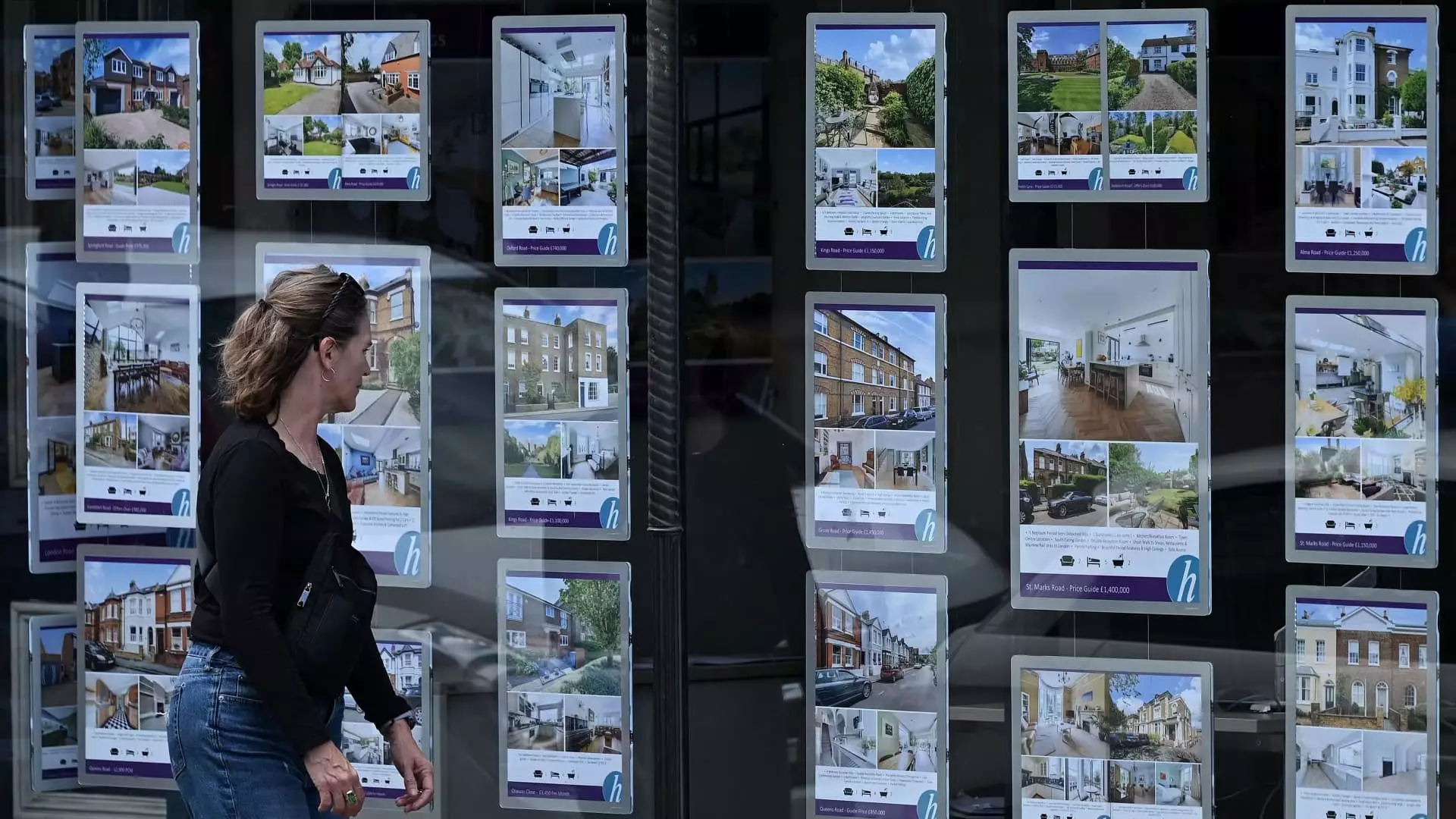The U.K. housing market is witnessing a significant resurgence, primarily instigated by a recent decline in mortgage rates, which has invigorated both buyers and sellers. For homeowners who have been hesitant to engage in real estate transactions in the wake of economic uncertainty, the current climate represents a welcome opportunity. Recent data indicates a remarkable 25% year-on-year increase in home sales for the period ending September 22, a tempo of activity unseen since the spring of 2021. This surge can be attributed to a shift in consumer sentiment, as many prospective buyers who have previously delayed their moving decisions are now finding the market more accessible and inviting.
Inquiries from potential homebuyers have similarly surged, climbing by 26% within the same timeframe. This uptick suggests not just a willingness to buy but an eagerness that may reshape the landscape of home ownership in the U.K. As a broader consequence, shares in major British homebuilders such as Taylor Wimpey and Barratt Developments experienced a modest increase of 1.4%, signaling renewed investor confidence in the housing sector.
A closely examined variable in this housing market revival is the notable fall in mortgage rates. Data from Rightmove indicates that the average cost of a five-year fixed mortgage has reduced to 4.57%, down from 5.53% last year. This downward trend has catalyzed a wave of refinancing and new purchases, as some products are now available at even lower rates—around 3.7%. Such pricing, well under the Bank of England’s (BoE) key rate of 5%, augurs well for potential buyers and reflects a significant pivot from previous years of high borrowing costs.
Richard Donnell, Executive Director at Zoopla, expressed that these lower mortgage rates serve as a crucial confidence booster for homeowners. After two years of trepidation, individuals who have been waiting on the sidelines are reentering the market. The positive ripple effect of this re-engagement can also be seen in the recent spike in mortgage approvals, which reached the highest levels in two years this August according to the BoE.
The momentum is not uniform across the U.K.; it varies significantly by region. Nationwide reports a staggering 8.6% increase in house prices in Northern Ireland and a 4.3% rise in Scotland, indicating that property values in the north of England are notably outperforming those in the south. London, traditionally a heavyweight in property values, showcased a modest but admirable growth rate of 2%. Conversely, the market for apartments appears to lag behind as a post-pandemic preference for spacious homes drives buyers away from smaller living spaces.
Further complicating this dynamic is the impending Labour government’s budget announcement, which has led many landlords to offload rental properties. Concerns regarding potential tax hikes on buy-to-let investments are prompting an influx of additional inventory into the market. This increase in supply might temper price increases in the foreseeable future, posing unique challenges within this buyer’s market.
While the current environment presents considerable opportunity, there remains an underlying caution as both market participants and analysts grapple with possibilities for future tax reforms. The Labour government, grappling with a revealed £22 billion deficit, may consider increasing capital gains tax and inheritance tax—both of which directly impact real estate transactions. Finance Minister Rachel Reeves has indicated a need for fiscal adjustments, which, if realized, could subsequently dampen enthusiasm in the housing market.
Moreover, the uncertainty surrounding potential changes to non-dom tax status may influence high-end property sellers, as affluent individuals weigh their options in potentially more favorable tax jurisdictions. As we look forward, the potential for further mortgage rate adjustments remains a critical focal point. Market observers eagerly await the upcoming Bank of England meeting, where hints of possible rate cuts could either reinforce or undermine the current surge in housing activity.
The U.K. housing market is navigating a transformative period characterized by lower mortgage rates, a renewal in buyer confidence, and fluctuating regional dynamics. The interplay between optimistic market trends and the looming specter of potential tax reforms creates an intriguing narrative in the upcoming months, highlighting the delicate balance between opportunity and caution in this evolving landscape.

